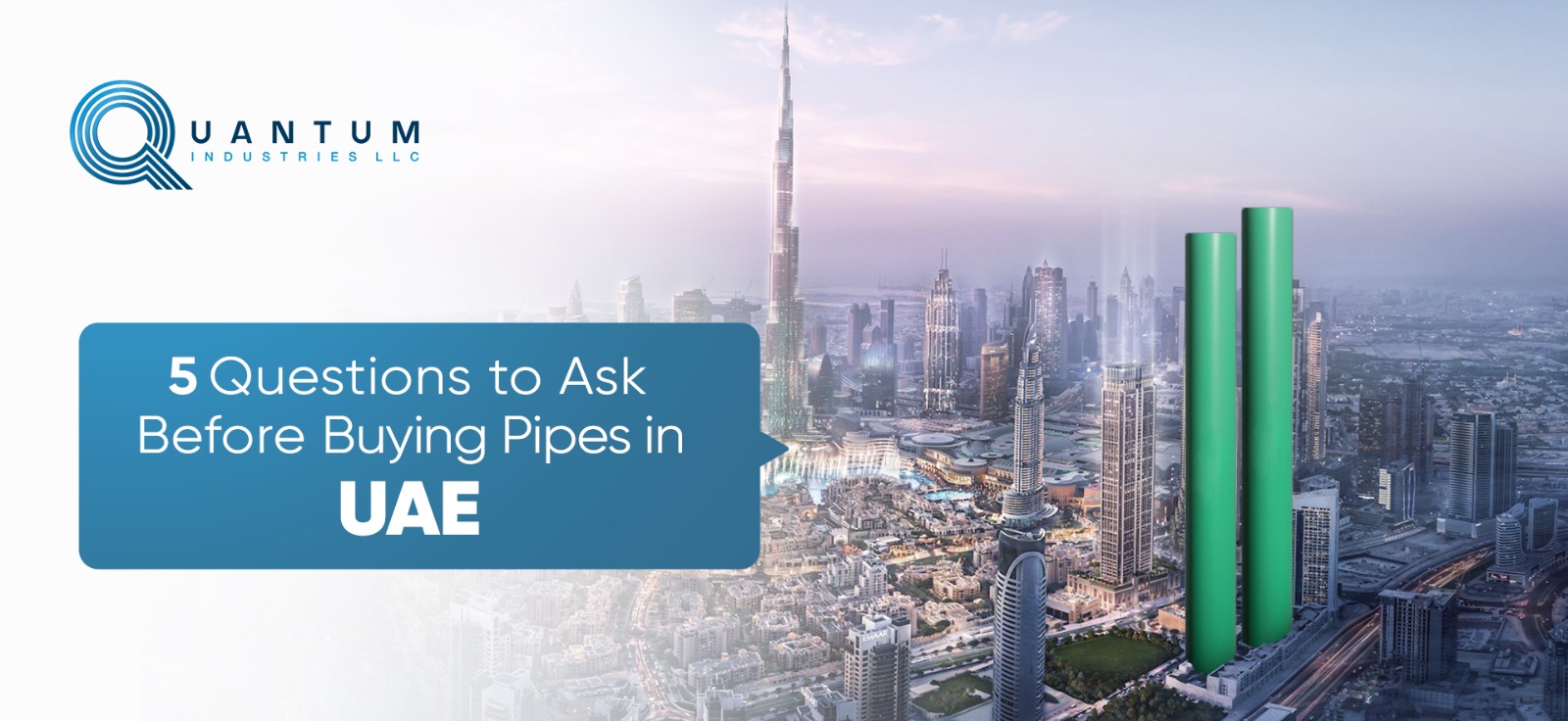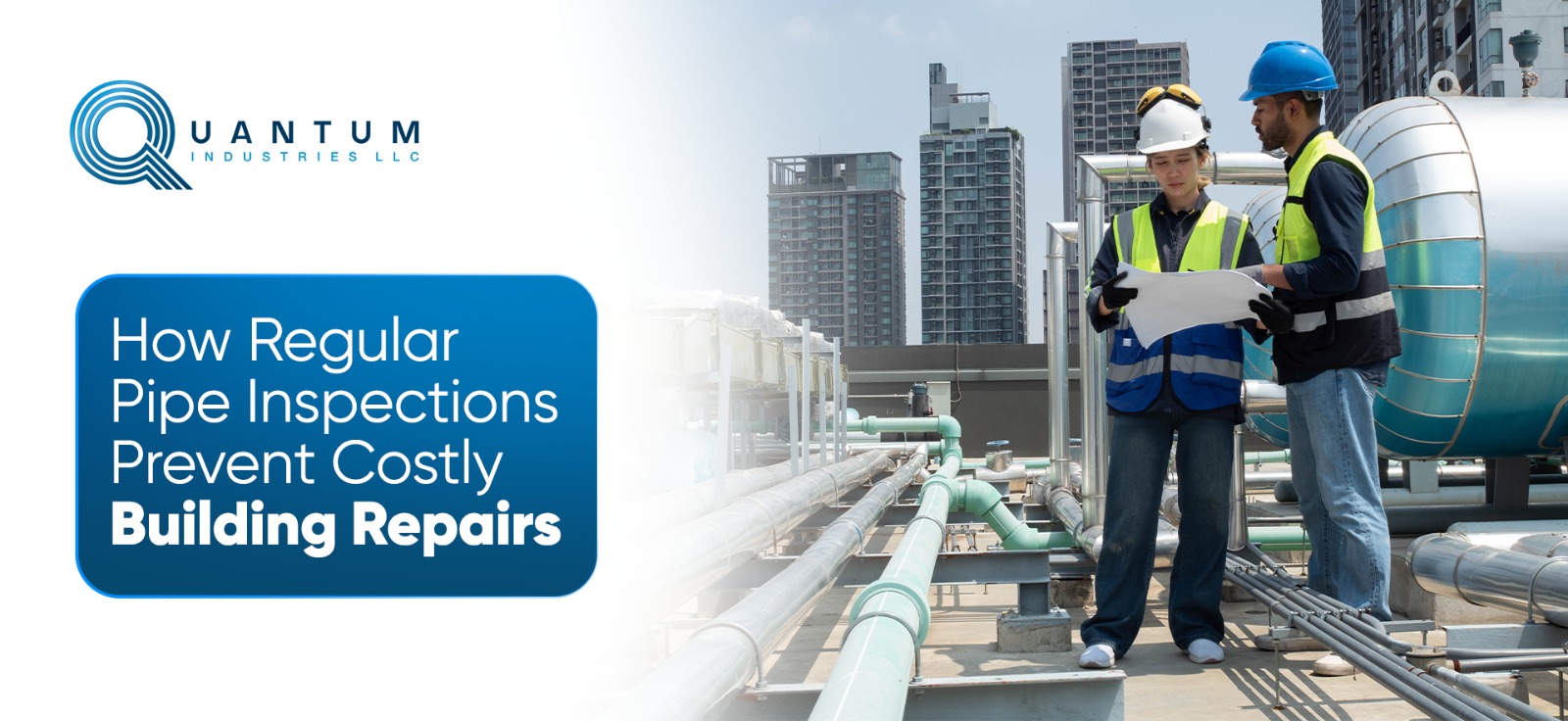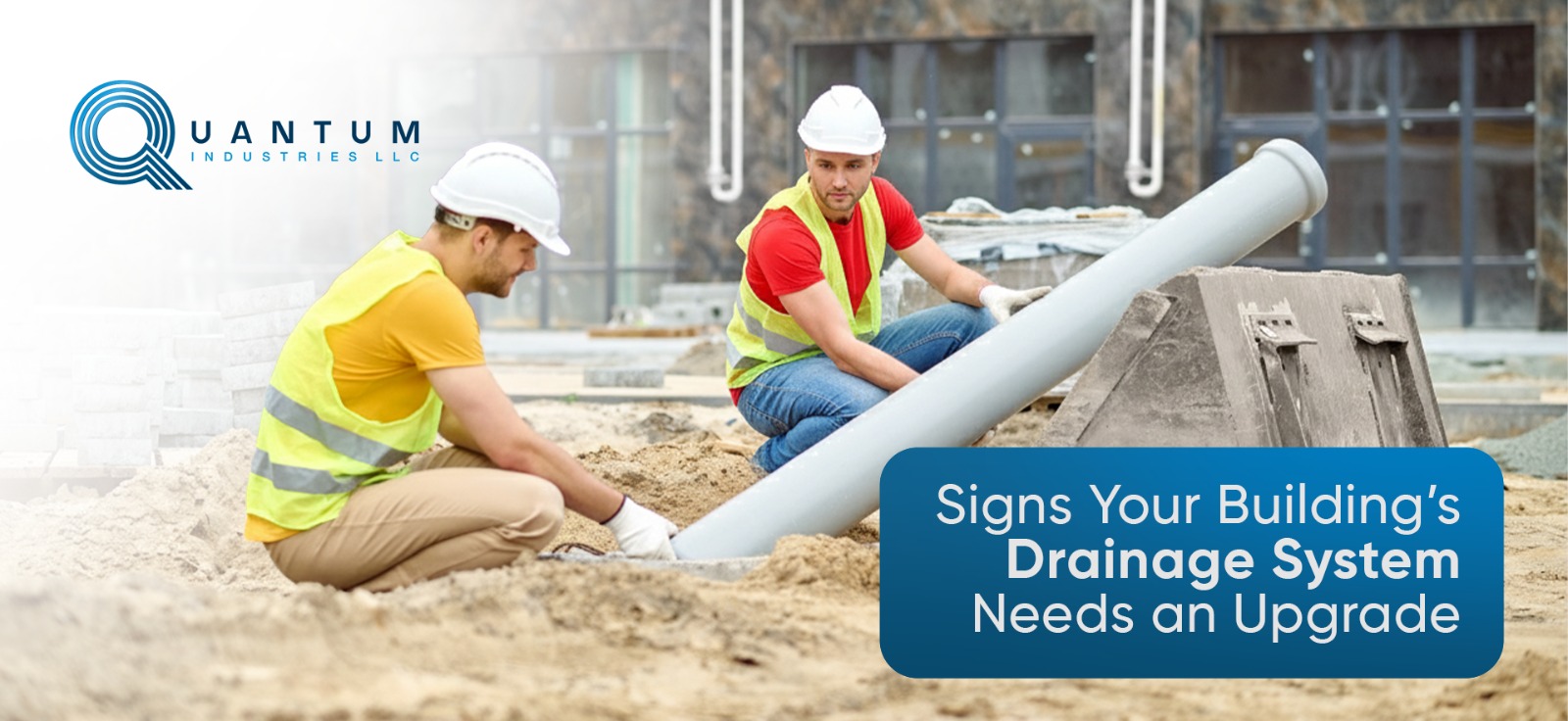



Tall buildings and other man-made wonders dominate the UAE's grounds and skies. There is a secret system of pipes beneath everything you can see above that keeps water, air conditioning, and every industry running. The United Arab Emirates is a place where desert sands push even the hardest materials to their limits and summer temperatures climb over 50°C. Choosing the incorrect pipe can result in inconvenience and expensive accidents. Here we explore the 5 important Questions to Ask Before Buying Pipes in UAE that differentiate a wise investment from a plumbing disaster.
Since PVC is inexpensive, people frequently choose it for plumbing without giving it any thought. However, "cheap" might quickly turn into expensive at a plant handling chemicals in Abu Dhabi or a high-rise in Dubai, where cool air conditioning water battles with rooftop heat. The environment of the United Arab Emirates needs material intelligence when choosing the pipes.
Under heat stress, the molecular structure of PPR pipes flexes, avoiding fractures during cycles of expansion and contraction.
PPR has a molecular flexibility, which guards against breaking under heat stress during expansion/contraction cycles. It is perfect for domestic plumbing, municipal water systems, AC condensate lines, and more since it can tolerate constant temperatures of up to 95°C.
The remarkable flexibility and freeze resistance of PEX (Cross-Linked Polyethylene) perform exceptionally well in the United Arab Emirates. It can stretch up to three times without bursting when water freezes.
However, prolonged exposure to the sun results in brittleness, and this sensitivity to UV light limits its application to indoor or underground installations. PEX is perfect for hydronic heating systems and water distribution lines owing to its flexibility, which speeds up installations by reducing fitting needs as compared to rigid pipes.
The ESMA (Emirates Authority for Standardisation & Metrology) is more than simply documentation. It is your assurance that pipes won't burst under strain or release poisons into drinking water. Uncertified pipes are linked to several failed site inspections in Dubai. So, it is important to look beyond the logo when choosing the right pipes in the UAE.
A highly rigorous European certification confirming that Quantum systems meet German standards for safety, reliability, and functionality in gas/water networks.
This is a UK-based but UAE-recognised WRAS Approval attests to the material's safety when used with chlorinated water.
As a premier certification body for plastics, SKZ guarantees the performance, longevity, and quality of materials, notably in thermoplastic piping systems such as PP-R and HDPE.
Operating globally as a leader in testing and certification, EXOVA validates product durability, safety, and performance when subjected to extreme environmental conditions.
Brands like Quantum Industries make sure the quality of pipes we offer is certified with these certifications.
Pipe dimensions are more than just numbers in the construction environment of the United Arab Emirates; they are a vital component of your whole system. On paper, a 32mm vs 40mm pipe might not seem like much, but in the desert sun, that difference can cause severe flow limitations, water hammer explosions, or floods.
Several suppliers usually promote "comprehensive size ranges" for the pipes they offer. However, the UAE has a landscape where every project requires strict accuracy when it comes to the size of pipes.
Pressure Increases: High velocity plus narrow pipes equals a water hammer. This could result in joint failures in IV-grade water pipes.
Gaps in Thermal Expansion: Choosing the right size of pipe is essential for controlling thermal expansion pressures in the UAE infrastructure, not simply for flow efficiency. It is particularly difficult to prevent damage in busy metropolitan areas like Dubai or Abu Dhabi because larger pipes expand substantially when heated, necessitating larger spacing and stronger support structures. Engineers greatly lessen the physical strain brought on by temperature fluctuations by selecting pipes of the proper size.
Climate-aware engineering is necessary for true reliability. Always request temperature-adjusted ratings. Scaling charts and expert assistance are provided by reputable vendors such as Quantum Industries.
Because of temperature stress and material deterioration, overlooking ratings increases the likelihood of hazardous leaks or bursts. Reliability, failure prevention, safety, and lifespan are ensured by using pipes rated higher than the maximum anticipated pressure and peak temperature of your system.
Pipe pressure and temperature ratings are significantly adjusted to the severe operating and environmental conditions in the United Arab Emirates. Polypropylene random copolymer (PPR) pipes, widely used in HVAC and plumbing systems, match PN pressure ratings (PN10 for 10 bar at 20°C, PN25 for 25 bar, etc.) and can withstand temperatures up to 95°C, while extended exposure over 60°C speeds up aging.
Unprotected pipes deteriorate quickly in the UAE sun. It takes months for surface cracks to form. By the second year, structural breakdown is inevitable. All these calls are for the selection of UV-protected pipes from local, reliable brands. "UV-Resistant" pipes are not all created equal: Carbon black is added to standard PVC to provide UV protection; however, it fades. Modern PP-R pipes, such as QTherm Multilayer Fiber Pipes, are a unique combination of strength, flexibility, and UV resistance.
For long-term dependability in exposed applications such as rooftop lines, irrigation, or external building conduits, selecting a pipe certified for UV protection and high-temperature tolerance is crucial.
In the UAE’s extreme climate and high-pressure infrastructure demands, choosing the right pipe isn’t just a technical decision—it’s a critical investment in safety, efficiency, and longevity. From selecting the appropriate material—like PPR for heat resilience or stainless steel for corrosion resistance—to ensuring compliance with certifications like ESMA, NSF/ANSI 61, or WRAS, every choice matters. Proper pipe sizing, pressure/temperature tolerance, and UV resistance are not optional—they're essential to avoid long-term system failures, costly repairs, and compliance issues. By asking these five essential questions before purchasing, contractors, engineers, and developers in the UAE can ensure they’re investing in a future-proof solution that can withstand the region’s unique environmental and regulatory challenges.

